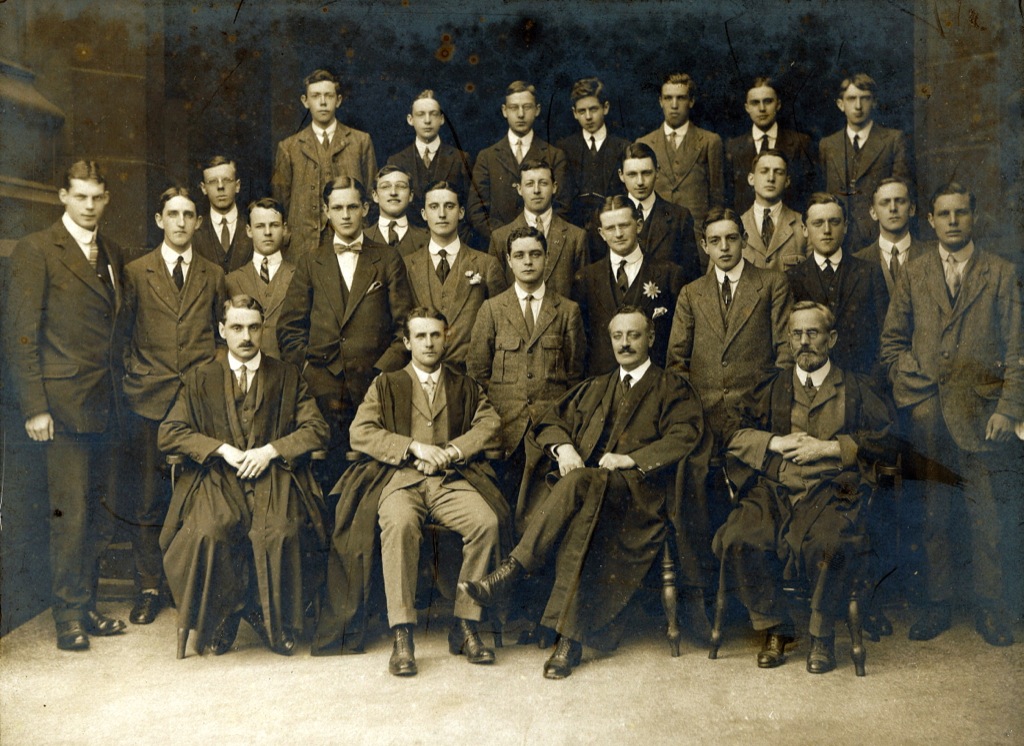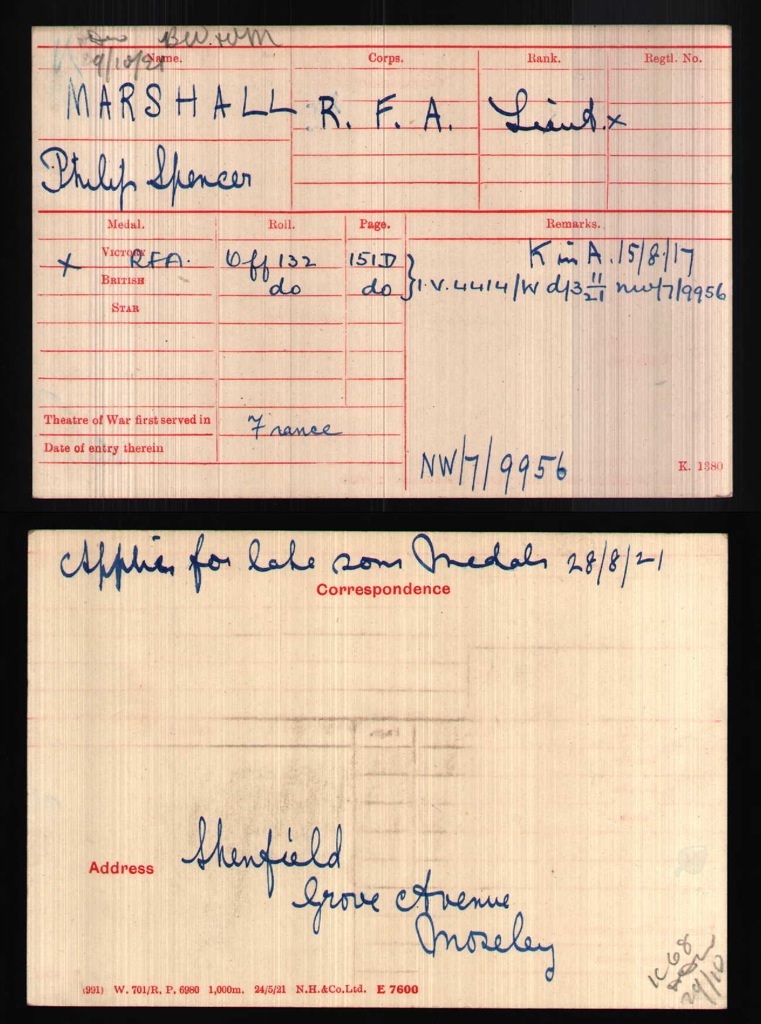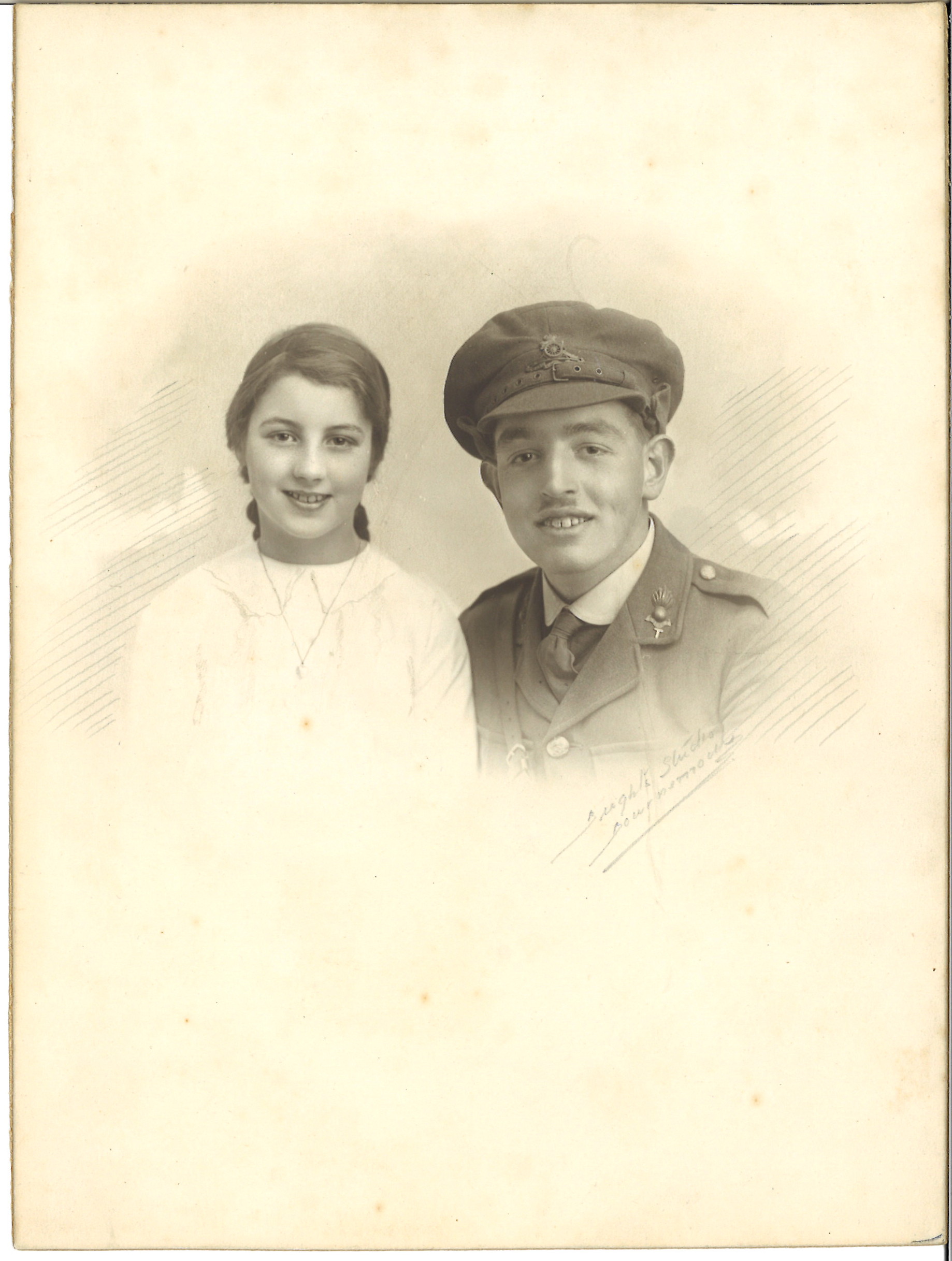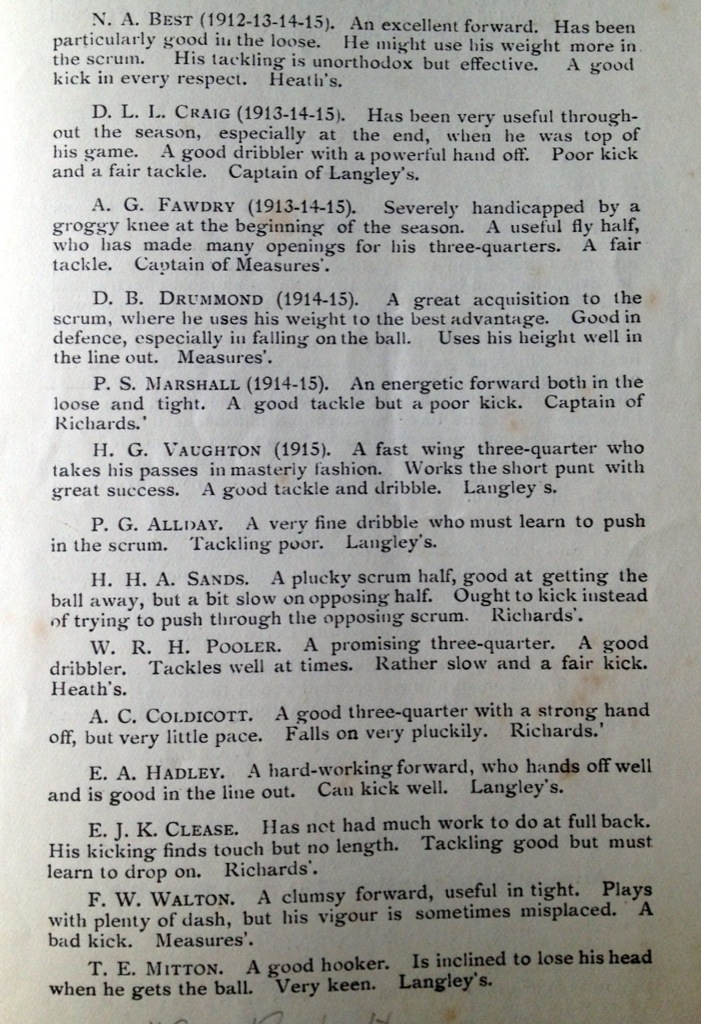Philip Spencer Marshall (known as Spencer) was born on 16th December 1896, and was admitted to King Edward’s School in January 1906. He was awarded a Foundation Scholarship in 1907 and 1909. Spencer lived with his parents Jessie and Philip, manager of a lacquer manufacturing company, and his sister Evelyn at 69, St Peter’s Road, Handsworth (later 50, Grove Road, Moseley).
Spencer was an active member of the school community. He played in the 1st XV (1914-15) and was described in the school magazine as “an energetic forward, both in the loose and tight…a good tackle, but a poor kick…Captain of Richards’.” He was awarded his colours after a match against Bromsgrove in 1915. He also dabbled in athletics, placing joint 2nd in the half-mile race in 1914, and was Lance Corporal in the school Officer Training Corps in 1913. In his maiden speech for the Debating Society in October 1914, Spencer, seemingly keen to impress his peers, remarked that “one of the greatest calamities caused by the abolition of war would be the cessation of the OTC, while Dreadnoughts would have to become pleasure boats. War breaks up the monotony of geography by altering the map.”
Spencer was gazetted as a 2nd Lieutenant immediately upon leaving school in February 1915, joining the Royal field Artillery. He was sent to France in May 1916, and promoted to Lieutenant in June. Spencer “did some excellent work at the extreme South of the British line”, and was recommended for (though he never received) the Military Cross for actions in April 1917. The official record states: “During the afternoon of 28th April 1917, Lieutenant Marshall displayed great gallantry and devotion to duty; his section was engaged in wire-cutting from a very forward position, when it became subject to heavy shelling from enemy howitzers, which continued for some four hours. Lieutenant Marshall, by his brave example ensured that the fire of his section was maintained with absolute accuracy. During the afternoon and evening, over 200 shells fell in close proximity to the section, and it can only be attributed to the careful handling of his men that the detachment did not suffer heavy casualties.”
Spencer was killed at dawn near Ypres on 15th August 1917 when an enemy shell hit a nearby ammunition dump. He is buried in Vlamertinghe New Military Cemetery, Flanders, and his headstone reads: “He Willingly Followed The Path Of Duty And Self-Sacrifice.” In a letter to Spencer’s parents, his Commanding Officer wrote of him: “He was always most conscientious, reliable and very brave, always cheerful…I can assure you he met his death like a true soldier. I had the pleasure at that time of recommending him for the Military Cross, but unfortunately it miscarried. Your son was killed instantaneously and not in the least disfigured…needless to say, he is greatly missed from every point of view.” Spencer left his estate of £251 to his father, who applied for his medals in August 1921. He is remembered on the war memorials in both St Agnes’ Church and St Mary’s Church, Moseley.

.jpg)






